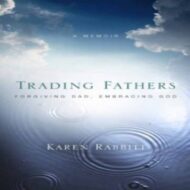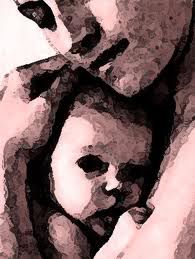Why did my father leave? Why did my mother ignore me? Why did my father violate me? Why did my mother ridicule me? Why? Why? Why? We can get stuck on that question.
It’s a common question. But the “why” questions are only the first layer. It’s not the deepest question. The deeper questions expose guilt and shame:
“Was I being punished?” “Did I do something so wrong that I deserved that treatment?” That’s guilt.
“What is wrong with me to be treated so badly?” “Am I defective?” That’s shame.
Those questions are harder to explore.We are so afraid that we deserved the abuse we received, we hesitate to ask the deeper questions. We may feel like we did something wrong, wrong enough to deserve the pain. And, most of us who’ve been seriously hurt in childhood feel like something’s wrong with us.
Actually, those feelings are functional when we are children. If we understood, as a child, the evil in who we’ve been entrusted to and the emotionally dangerous milieu in which we moved, we’d be paralyzed with fright. If the people we depend on are streaked with evil, how will I survive? If my father can calmly destroy my sense of safety, what’s to say he won’t kill me? My survival is at stake, as a child. It is more functional to believe something is wrong with me than something is evil in my dad.
In adulthood, though, the fears need to be explored and addressed. So that we can get to the truth. Because the truth, the answer to the “why?” is: my mother spewed evil. My father was a conduit for Satan.
The truth: what we deserved is what every child deserves. To be nurtured, attended to, respected, trained, and taught. With kindness.
No one deserves to be left, ignored, rejected, laughed at. If we misbehave, we deserve kind, firm correction. If we struggle with schoolwork or friendships, we deserve kind, competent help.
Nothing is especially wrong with us that we deserved the abuse we got. That’s the truth that will help set us free. Shame is Satan’s lie. Don’t let Satan win.
Jesus, you have won the victory over guilt and shame. Please speak your truth to our feelings and give us grace to receive.



